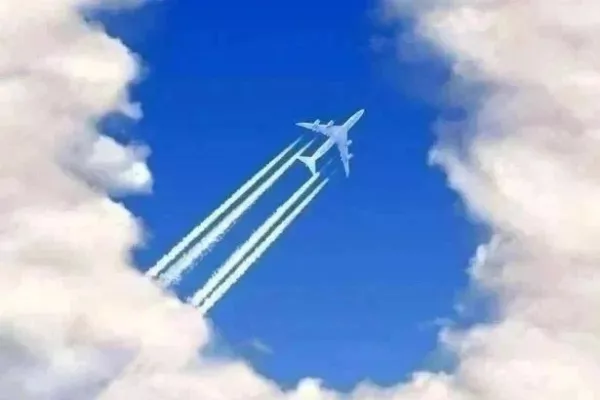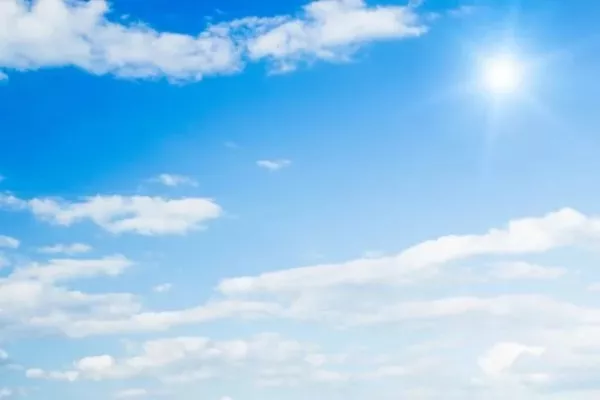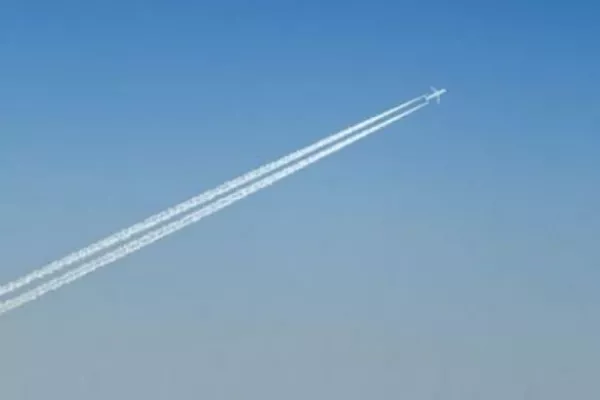Hospitality Ireland presents a round-up of global travel, airlines and aviation news.
UK Tourist Travel Ban A "Disaster" For French Ski Resorts
In the French ski resort of Val d'Isere, staff had been hired, shelves fully stocked and everyone was looking forward to a good season until, that is, France banned British tourists due to fears over the Omicron variant of the coronavirus.
The ban was announced on Thursday December 16, just two days before the start of the holiday season.
"It's an economic disaster," said resort director Christophe Lavaut, pointing out that in Val d'Isere, the bulk of the clients come from Britain. "No business in any sector can make it, losing 42% of its clients in two days."
While he does not contest the need to take measures to fight the spread of the highly transmissible variant - and infections are soaring in Britain - he said his resort would need help from the government.
The government has so far not announced any specific help.
France's statistics office forecast this week that the country's economic recovery from the pandemic had proved stronger than expected this year, with growth on course for a 52-year high as COVID restrictions had been eased and the vaccination campaign gained momentum from mid-year.
But for the ski sector, hoping for better times after the 2020/2021 season was all but wiped out, with ski lifts ordered shut, that is of little comfort.
Jean-Marc Silva, of the France Montagne association, said Britons made up the single biggest foreign group of visitors to French mountain resorts, and accounted for 9% of clients - and an even bigger share of business as they enjoyed the apres-ski hospitality.
"Brits love the mountains and don't really have that many in their country, so they've made the French mountains their own," Silva said.
"It's not the same clientele as the French," Silva said. "The French visitor is here to ski. The British visitor will ski but he will also be the first at the after-ski activities ... They have this pub culture. They spend more than others. They really make the most of being there."
Under the new rules, holiday travel from Britain is not allowed to France - unless you are French, your partner is French or you are a permanent resident there.
Mark Tanzer, chief executive of British travel association ABTA, has also said move is "a hammer blow to the winter travel industry".
In L'Alpe d'Huez, in the French Alps like Val d'Isere, British visitors account for a quarter of the clientele.
The head of the tourism office, François Badjily, said hopefully losses would be contained over Christmas, when the majority of clients are French.
"But in January, when the French don't go much on holidays, where we have a lot of foreign tourists, it will be a real hit," he said.
"These are clients who spend more on average than others, who take ski lessons, who go to the restaurants, who go out a lot, so losing a quarter of visitors will be losing more than a quarter of our business."
Foreigners Welcome To Swiss Ski Lifts If They Respect Pandemic Rules
Swiss ski lifts are open for foreign visitors as long as they respect the rules that the government has introduced to try and break the momentum of the coronavirus pandemic, Health Minister Alain Berset said on Friday December 17.
"The government's goal is to keep as much as possible functioning, of course under different conditions as if there were no pandemic," Berset told a news conference when asked about a French ban on British tourists seeking winter fun.
He was speaking after Switzerland said it will expand from Monday December 20 the requirement for people to show proof of vaccination or recovery from the coronavirus to access many indoor venues, but stopped short of a stricter lockdown.
People who are vaccinated or have recovered from COVID-19 still need to present a recent negative COVID-19 test to enter Switzerland, but the government dropped plans to require re-testing days later.
A week before the main winter sports season begins, ski resorts had been waiting to see how the government would handle the situation. Vaccination is not required to ride on lifts, where passengers have to wear masks in enclosed cabins.
Skiers need to present proof of vaccination or recovery to go inside a mountaintop restaurant for a hot soup or drink, but not to lounge on an outside terrace.
Berset said he hoped there would not be any case clusters in the ritzy resorts of Valais canton or the Bernese Oberland.
"We hope we are launching a system that lets people who can show immunity enter Switzerland and go on holiday," he said.
Canada's Vaccine Mandate For Foreign Crews A Headache For European Airlines
European airlines are walking an increasingly fine line to meet both foreign inoculation and local privacy requirements, as more countries require flight crews to be vaccinated against COVID-19, carriers say.
Canada is slated on Jan. 15 to end an exemption that allowed entry of unvaccinated foreign flight crews, joining others that have vaccine mandates for pilots and passengers alike.
That's creating a logistical headache for European carriers, who are unable to ask for their employees' vaccination status since they are bound to strict data protection laws in Europe, a spokesperson for the trade group Airlines For Europe (A4E) said.
"Carriers will need to find workarounds in order to comply with the Canadian entry requirement," A4E spokesperson Jennifer Janzen said by email.
U.S. carriers like United Airlines require their cabin crew to be fully vaccinated, while rivals like American Airlines and Southwest Airlines have delayed the effective date of vaccine mandates until 2022 for employees.
Airlines, which have suffered steep losses due to COVID-19 travel restrictions and bans, are blaming a patchwork of shifting rules for increased red-tape and depressed demand for international travel.
Airlines expect to see more inoculation mandates for crew as the fast-spreading Omicron variant forces governments to tighten border restrictions.
"We now see that more and more countries are mandating or considering immunization of flight crews," said KLM Royal Dutch Airlines in a statement.
The carrier identified intercontinental flights to about 10 destinations where crew are currently not exempt from vaccine requirements.
As more countries demand proof of inoculation from everyone on planes, international flights will no longer be practical without vaccinated crews, said a spokesperson for Germany's Lufthansa AG which can't obligate its personnel to be vaccinated against COVID-19.
Canada, which implored residents on Wednesday not to leave the country due to Omicron, is expected to announce on Friday that it will again require people returning from short foreign trips to submit a negative COVID-19 test.
Still, some countries give foreign flight crews a pass from vaccination rules aimed at international travelers, as recommended by the U.N.'s aviation agency.
International flight crews are exempted from U.S. requirements that all non-U.S. citizens travelling from abroad be vaccinated. Transport Canada said in a statement it is working closely "with public health officials on the vaccination requirements impacting international aircrew."
Since KLM does not require crew members to be inoculated or share their vaccination status, employees must instead seek a generalised "travel restriction" so they are not scheduled to fly to a destination with entry requirements they cannot meet, the carrier said.
"Managers do not gain insight into the reason for the restriction," the airline said in the emailed statement. "Only in this way we can continue to fill in the rosters properly and keep our operation feasible."
Bidding Race On For Vertical Aerospace eVTOL Plant As Shares Debut
As the flying taxi market takes off, the race is on to decide where the future vehicles will be built with one of the backers of newly listed Vertical Aerospace - Irish leasing boss Domhnal Slattery - pushing for a manufacturing base in Ireland.
Shares in the electric vertical takeoff and landing aircraft (eVTOL) maker, backed by investors such as Slattery's Avolon aircraft leasing company and American Airlines, rose sharply at their market debut on Friday December 17 after a blank-check merger valued at $2.2 billion.
Unlike many other entrants in the increasingly busy eVTOL market, Vertical Aerospace is focusing only on design, manufacture and services rather than ride-sharing operations, sparking a bidding race to secure high-tech production work - and the highly skilled jobs that go with it.
It has reported pre-orders for up to 1,350 aircraft worth $5 billion from customers including American and Virgin Atlantic.
"We have been speaking to a number of different governments about where we might build the production facility. Domhnal is very keen on us taking it to Ireland," founder and Chief Executive Stephen Fitzpatrick said after ringing the opening bell in New York.
While the Republic of Ireland is a global hub for aviation finance, it does not host any major aerospace manufacturing. A plant would help the government achieve two of its objectives: boosting its green technology sector and diversifying away from investment dependent on the country's low corporate tax rate.
"I would love to see it in Ireland. I think it would be a fantastic location. The UK is equally attractive and indeed other jurisdictions," Slattery told Reuters in an interview.
Bristol in the UK, where Vertical Aerospace is based, has thousands of aerospace engineers and discussion of where to place the plant is for now "hypothetical," Fitzpatrick said.
Even once a decision is made on where to build the vehicles, analysts warn a key question is how long it will take for new electric aircraft to be certified by aviation authorities.
Vertical Aerospace is aiming for 2024 and expects to commission a dedicated certification vehicle in coming weeks.
"We are on programme for the end of 2024; we are giving ourselves a window of 2024-2025," Fitzpatrick told Reuters.
"The key challenge we have is to certify the aircraft, there is no doubt about it," he said, adding partners including Rolls-Royce and Honeywell would handle key components.
"We are going to have these aircraft flying over cities all over the world in not less than three years but not more than five."
France To Support Ski Resorts Hit By British Tourists Ban
France will compensate ski resorts hit by the ban on British tourists and will try to steer more French tourists to the mountains to make up for lost earnings, the tourism minister said on Saturday December 18.
Under new rules taking effect on Saturday December 18, meant to protect from importing the Omicron COVID-19 variant, holiday travel from Britain is not allowed and only French nationals and their partners, as well as foreigners with a permanent residence in France, can enter the country from the UK.
Tourism minister Jean-Baptiste Lemoyne said on BFM TV that British tourists accounted for about 15% of French ski resort customers overall, but the percentage was much higher in some resorts such as Val d'Isere, Courchevel and Meribel.
"Last year the government has provided €7 billion of support for the sector and we will continue to stand by the industry," Lemoyne said, without specifying what measures could be implemented.
He added that because of a new lockdown in the Netherlands, Dutch tourists, who account for about 5% of the customers in French ski resorts, may also be more scarce this season.
The ban on British tourists was announced on Thursday, just two days before the start of the holiday season.
Asked whether the French government had plans to ban tourists from countries other than Britain, Lemoyne said this would depend on the health situation in those countries.
"Sometimes countries go to code red (in the government's alert scale), sometimes they go back to other colours. We recommend that travelers check the foreign ministry website," he said.
Lemoyne added that French citizens would always have the right to return from any country, no matter how intense the epidemic there, but would have to submit to stricter testing and quarantine rules.
"The right to return is sacred," he said.
Omicron Threat Looms Over Winter Holidays In Europe And U.S.
The Netherlands went into lockdown on Sunday December 19 and the possibility of more COVID-19 restrictions being imposed ahead of the Christmas and New Year holidays loomed over several European countries as the Omicron variant spreads rapidly.
In the United States, White House medical adviser Dr. Anthony Fauci urged people travelling to visit loves ones to get booster shots and always wear masks in crowded public spaces.
He said Omicron was "raging through the world" and that travelling will increase the risk of infection even among vaccinated people. Since the start of the month, U.S. COVID cases have risen 50%, according to a Reuters tally.
Dutch urban centres were largely deserted as the country began a snap lockdown that threw people's Christmas plans into disarray.
Prime Minister Mark Rutte announced the shutdown on Saturday evening, ordering the closure of all but essential stores, as well as restaurants, hairdressers, gyms, museums and other public places from Sunday until at least Jan. 14.
Omicron, a very contagious variant first detected last month in southern Africa and Hong Kong, has raced around the globe and been reported in 89 countries, the World Health Organization said on Saturday December 18. It said the number of Omicron cases is doubling in 1.5 to 3 days in areas with community transmission, but noted that much remains unknown about the variant, including the severity of the illness it causes.
While the Netherlands took the plunge and shut down much of public life to prevent its healthcare system from being overwhelmed, several other European governments are considering additional curbs - at a time when businesses count on people spending more heavily than usual on shopping, entertainment and travel.
Overall COVID infections are rising in 64 out of 240 countries and territories tracked by Reuters, with 12 countries recording more cases than at any point during the pandemic, including the United Kingdom.
Sajid Javid, the health minister, declined on Sunday December 19 to rule out the chance that Prime Minister Boris Johnson's government will impose further restrictions before Christmas.
He said the government was taking the "sobering" advice of its scientists seriously, was watching the data closely, and would balance both against the broader impact of restrictions on areas such as businesses and education.
Johnson is reeling after a series of scandals and missteps, and more than 100 of his own Conservative lawmakers this week voted against the government's latest measures to tackle what he had warned was going to be a "tidal wave" of Omicron cases.
Javid said Johnson was not too politically weak to bring in further curbs if necessary.
In Italy, the government is considering new measures to avoid a surge in infections during the holiday period, local newspapers reported on Sunday.
After meeting with ministers on Dec. 23, Prime Minister Mario Draghi could mandate that people who have been vaccinated also show a negative test to access crowded places, including nightclubs and stadiums, daily Corriere della Sera reported.
Germany's health minister Karl Lauterbach ruled out a Christmas lockdown on Sunday but warned a fifth COVID-19 wave could no longer be stopped, adding that he viewed mandatory vaccination as the only way to end the pandemic.
News by Reuters, edited by Hospitality Ireland. Click subscribe to sign up for the Hospitality Ireland print edition.








